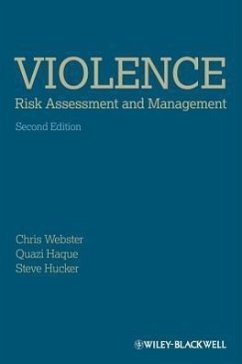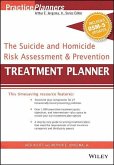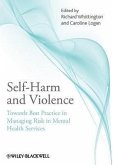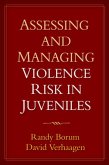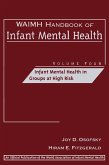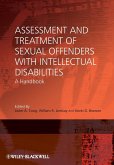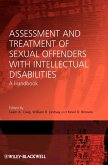Now in an updated and expanded second edition, this volume offers comprehensive guidance and background material on decision-making in cases where future violence is a potential issue. It outlines best practice in conducting violence assessments of individuals in varied contexts, including civil psychiatric hospitals, forensic mental health services and the criminal justice system. The authors detail the operation of criminal and mental health codes internationally, with a particular focus on Canada and England, and synthesize commonly agreed principles appropriate for use in assessing a client's propensity for committing violence. This new edition reflects a general change in violence risk assessment and management, with structured professional judgement now a well established approach, and engages with the growing attention paid to the role of protective factors when evaluating and managing violence risks. It demonstrates today's closer integration of risk assessment and treatment, covered in discrete chapters on planning and formulation.
Hinweis: Dieser Artikel kann nur an eine deutsche Lieferadresse ausgeliefert werden.
Hinweis: Dieser Artikel kann nur an eine deutsche Lieferadresse ausgeliefert werden.
This is an excellent account of risk assessment for mentalhealth professionals. It should find a place on everypractitioner's book shelf and every undergraduate readinglist.
--Professor Harry Kennedy, Trinity College Dublin
Webster and colleagues have produced an exceptionally usefulbook, situating leading contemporary models of violence riskassessment and management within decision making contexts. Theyprovide substantial pragmatic guidance on how to make toughdecisions about violence risk at various transition points withinforensic and correctional settings, and how to implement andevaluate risk assessment models within systems. This book will beilluminating for all key stakeholders - administrators;policy-makers; practitioners; and researchers.
--Professor Kevin Douglas, Simon Fraser University
--Professor Harry Kennedy, Trinity College Dublin
Webster and colleagues have produced an exceptionally usefulbook, situating leading contemporary models of violence riskassessment and management within decision making contexts. Theyprovide substantial pragmatic guidance on how to make toughdecisions about violence risk at various transition points withinforensic and correctional settings, and how to implement andevaluate risk assessment models within systems. This book will beilluminating for all key stakeholders - administrators;policy-makers; practitioners; and researchers.
--Professor Kevin Douglas, Simon Fraser University

